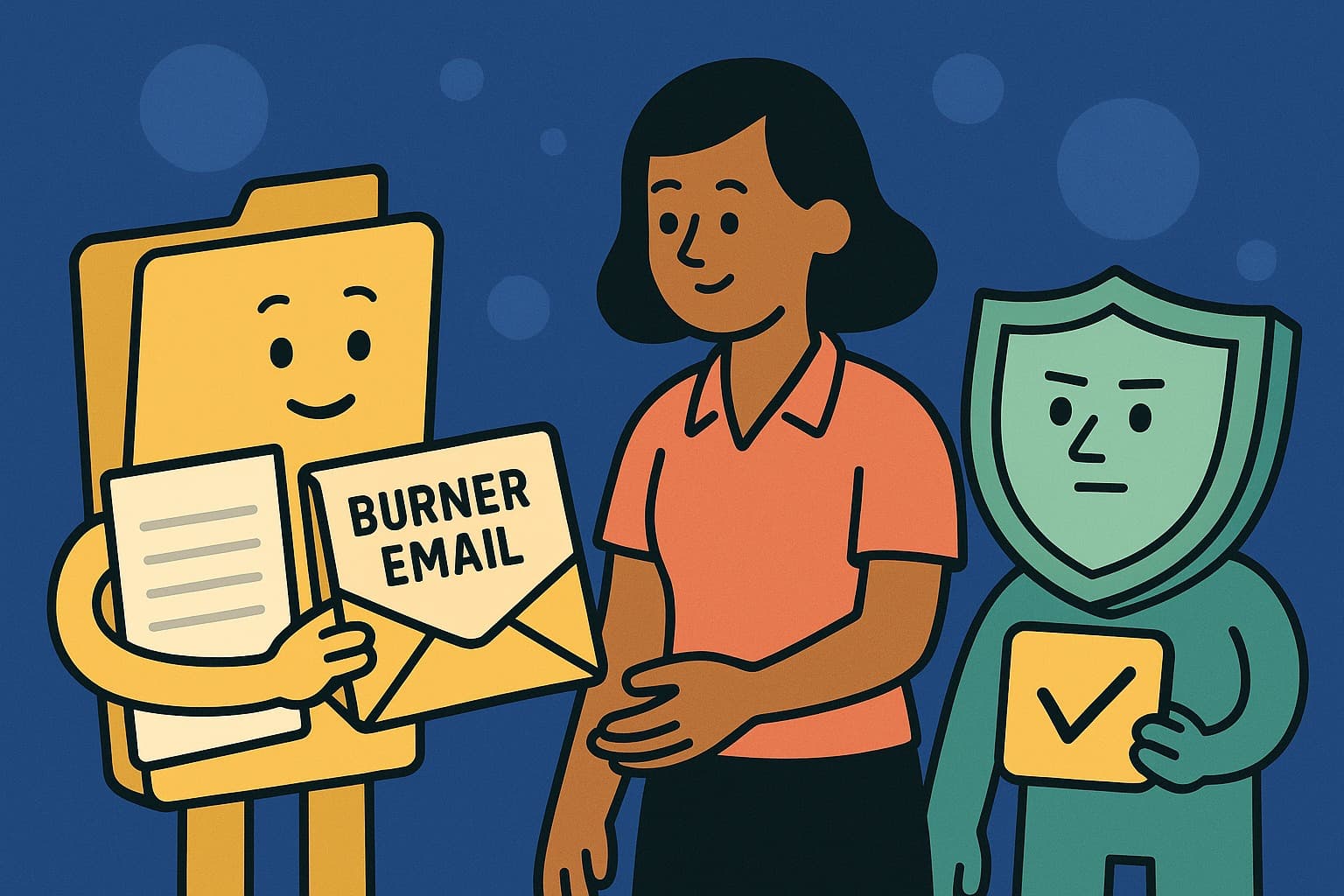The Employer’s Guide to Allowing Burner Emails — Why It Improves Security

The Employer’s Guide to Allowing Burner Emails — Why It Improves Security
At first glance, “burner emails” sound like the opposite of professionalism — temporary, anonymous, untraceable.
But as remote work, freelancing, and SaaS sprawl continue to expand, burner or alias email systems are quickly becoming one of the most practical security upgrades a company can adopt.
Paradoxically, the key to protecting your organization’s data may lie in letting your employees be a little anonymous.
🧩 The Modern Workplace Has a Data Leakage Problem
Even the most secure companies rely on third-party apps for:
- Collaboration (Slack, Notion, Asana)
- Automation (Zapier, Make, Airtable)
- HR and payroll tools
- Analytics dashboards and AI assistants
Each new tool wants an email address to create an account — often tied to the user’s corporate domain.
Every one of those sign-ups becomes a potential entry point for phishing, spam, or breach fallout.
When a compromised app leaks user credentials, the damage fans outward: same domain, same org, same phishing template.
Burner emails create circuit breakers in that system.
🔐 How Allowing Burner Emails Improves Organizational Security
Instead of banning external tool use (a losing battle), IT teams can issue policy-approved burner aliases for experimental or non-critical sign-ups.
Here’s how it helps:
- Containment — If one alias leaks, it’s isolated; attackers can’t pivot to the main domain.
- Traceability — Security teams instantly identify which tool caused the breach.
- Spam Control — Once a service starts spamming, disable the alias without disrupting other workflows.
- Anonymized Testing — Teams can evaluate new tools without exposing core infrastructure.
It’s the email equivalent of a sandbox — safe, monitored, and disposable.
🧠 The Psychology of Permission: Empowerment Beats Restriction
Most data breaches start with workarounds.
When employees feel overrestricted, they start using personal accounts to get things done faster — defeating every corporate control in place.
A burner-email policy gives teams flexibility within security boundaries.
It tells employees:
“We trust you to experiment — but do it safely.”
That message builds compliance, not rebellion.
⚙️ Implementing a Burner Email Policy (Minimal Overhead)
- Centralize alias creation through a tool or internal dashboard.
- Categorize aliases — e.g.,
testing@company.burn,vendors@company.burn,beta@company.burn. - Auto-forward relevant mail to team inboxes with clear labeling.
- Expire aliases quarterly or upon project completion.
- Track usage in a shared sheet for transparency.
- Educate staff on when to use burner vs. official credentials.
Bonus: burner-based registrations simplify compliance audits — you’ll always know which tools connect to which departments.
💼 Burners for HR and Hiring Too
HR departments often test new recruitment tools, résumé databases, or job-posting sites that require email registration.
Using a burner prevents candidate or internal communication overlap, and if a vendor gets compromised, sensitive metadata can’t trace back to the company’s main domain.
Similarly, for outbound recruiting or event sign-ups, disposable addresses reduce the spam that typically floods generic “careers@” or “info@” mailboxes.
🧠 Case-in-Point: Controlled Anonymity = Stronger Security
Anonymity inside a system sounds counterintuitive, but controlled anonymity builds resilience.
It decentralizes risk.
Instead of one breach exposing an entire network, you have dozens of expendable identities that can be retired instantly.
In cybersecurity, redundancy and compartmentalization aren’t inefficiency — they’re insurance.
🌍 The Bigger Picture: Privacy as Professionalism
Privacy isn’t rebellion anymore — it’s responsibility.
By formalizing burner-email usage, organizations signal maturity — acknowledging that human error is inevitable, but exposure doesn’t have to be.
Companies that empower secure experimentation are the ones that innovate faster, onboard safer, and sleep better.
🔚 Final Takeaway
It’s time to retire the idea that security equals restriction.
True resilience comes from controlled flexibility — and burner emails embody exactly that.
When used properly, they don’t hide employees; they protect them.
They don’t obscure communication; they isolate risk.
Because in the modern workplace, the smartest thing an employer can do…
is give every team the right to disappear when they need to.